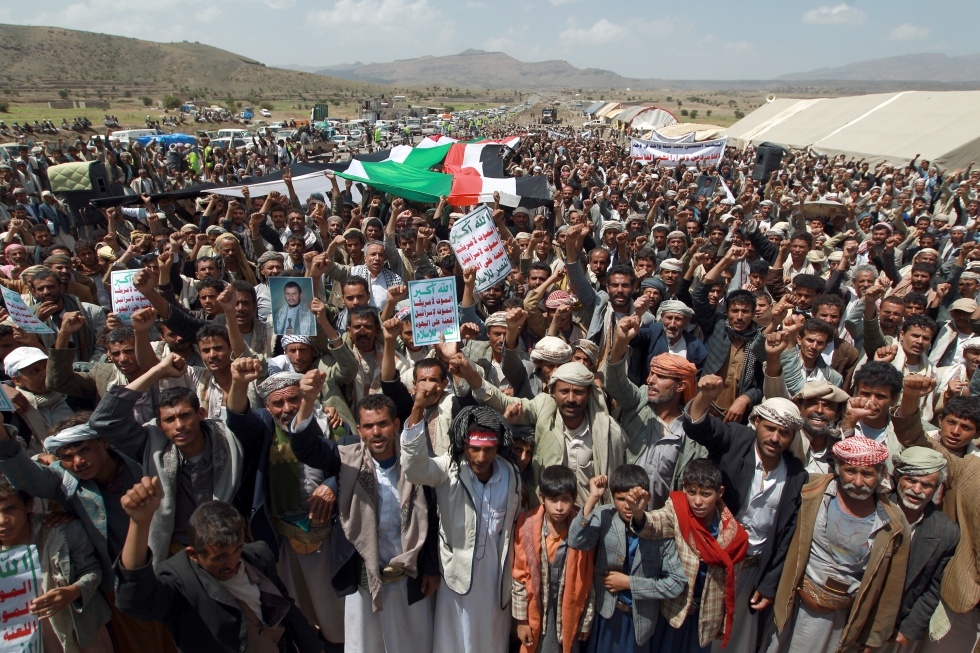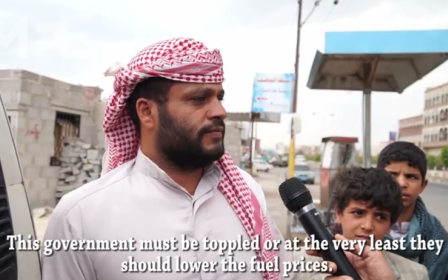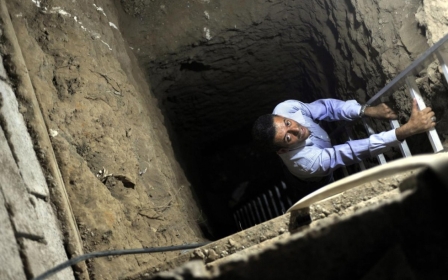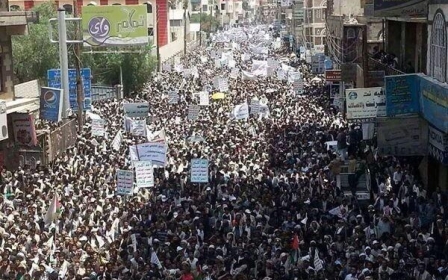'The government will fall on Saturday' say Yemen's armed Houthi rebels

Thousands of armed Shiite rebels in Yemen strengthened their positions in the capital Sanaa on Wednesday as they pressed their campaign to force the government to resign "by Saturday."
Rebel activists, who include Houthi tribesmen and their supporters, used cranes to build walls around protest camps across the capital, where protest leaders have given the government a deadline of Friday to meet their demands.
In a bid to stem the crisis, President Abd Rabbo Mansour Hadi called for dialogue with the rebels and invited representatives to join a "unity government.”
After a high-level meeting in Sanaa, leaders decided to send a delegation to rebel leader Abdel Malik al-Houthi, offering a ceasefire in exchange for ten ministerial positions for Houthis in a new government.
However, it seems that military commanders are not optimistic about the success of the meeting, to be headed on the government’s side by deputy Prime Minister Ahmed Abid bin Daghr.
The Ministry of Defence has put in place an emergency plan, including deploying the Fourth Brigade of Yemen’s reservists to enhance the army’s readiness.
Protests in the capital, fuelled by a steep increase in petrol prices, are increasing in momentum, and demonstrators are showing no signs of backing down.
The Houthi leader had said in a speech on Sunday that the authorities must address protesters' grievances by the end of this week, or face additional forms of "legitimate action.”
On Wednesday, men armed with Kalashnikovs were staffing makeshift checkpoints around the protest camps, while Yemeni military aircraft circled in the skies of the capital.
While there was little clear visible military or police presence near the protest camp, commenters on the ground reported an unprecedented mobilisation in other areas of the capital.
Yemeni news site al-Tagheer expressed concern at the security situation in the capital, warning that “hundreds of Yemeni families” have begun fleeing Sanaa in anticipation of escalation on Friday.
While the protest has so far been peaceful, there are concerns that the passing of the Friday deadline will mean an increase in violence.
"Our actions are peaceful but if the activists are attacked we will cut the hand of the aggressor," said Abu Ali al-Asdi, a spokesperson for the demonstrators.
"The resignation of the government is a popular demand and we are against all forms of corruption," he told AFP at a protest camp in west Sanaa.
The protest camp has provoked strong feelings among those opposed to the Houthi presence – anti-Houthi social media users have been accusing protesters of belonging to the Islamic State.
'The government will fall'
The rebels have been fighting an off-conflict with government troops in the northern mountains for the past decade but analysts warned their bid for a greater share of power in a promised new federal Yemen was creating a potentially explosive situation.
The Zaidi Shiites are the minority community in mainly Sunni Yemen but they form the majority in the northern highlands, including the Sanaa region.
There was also tension in the south of the capital where hundreds of armed men had built a vast encampment close to the main road linking Sanaa to the south.
"The government will fall on Saturday," declared Mohamed al-Hojari, an armed rebel stationed on the edge of the camp, where vehicles continued to bring protesters from the provinces.
Concerned by the gravity of the situation, President Hadi held a meeting with representatives from political parties, the army, and civil bodies who agreed the rebels latest actions were "unacceptable", his adviser Fares al-Saqqaf said.
A delegation is due to meet the rebels' leader Huthi in his northern fiefdom on Thursday when they will deliver a letter "inviting dialogue and encouraging them to join a unity government".
Yemen has been locked in a protracted transition since longtime strongman Ali Abdullah Saleh was forced from power in February 2012 following a deadly uprising the previous year.
The Zaidi rebels, known as Houthis after their leading family, are strongly opposed to the government's plans for a six-region federation, demanding a single region for the northern highlands and a bigger share of power in the federal government.
"The Houthis are capitalising on widespread frustration with the government and the recent rise in fuel prices to rally support and extract political concessions," said April Longley Alley, a Yemen specialist with the International Crisis Group.
"What is happening now appears to be increasingly dangerous political bargaining as part of the Houthis' bid to become a dominant political force in the north and in the national government," she said.
The rebels control Saada province in the far north and parts of several neighbouring provinces.
Rebel forces reached the outskirts of Sanaa in July after seizing the city of Amran to its north, although they later agreed to pull back.
Stay informed with MEE's newsletters
Sign up to get the latest alerts, insights and analysis, starting with Turkey Unpacked
Middle East Eye delivers independent and unrivalled coverage and analysis of the Middle East, North Africa and beyond. To learn more about republishing this content and the associated fees, please fill out this form. More about MEE can be found here.




